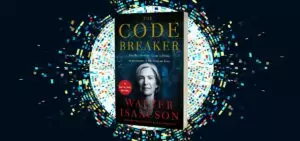By Nicky Charlish

✅ AI Essay Writer ✅ AI Detector ✅ Plagchecker ✅ Paraphraser
✅ Summarizer ✅ Citation Generator
Every crime writer sets his or her fictional detective some challenges to face. With this book, she sets herself one, too: how to give a conventional crime scenario a new twist, rescue it from being the bearer of familiar, if entertaining, clichés. Then, having done so, she must—like a defendant—await the verdict from her readers, discover their evaluation of how well she has succeeded in pleading her case. What is it going to be here?
Established noir crime writer Cathi Unsworth takes what might be regarded as a hackneyed theme—a possible long-standing miscarriage of justice in a small town with the threat of dark secrets waiting to be revealed as the truth (in this case, covered-up for two decades) is eventually brought to light. Private investigator Sean Ward—a former policeman retired from the force after having been shot in the line of duty—is hired by a barrister to re-open the case of Corrine Woodrow, convicted, when she was 15, of murdering one of her classmates in the Norfolk seaside holiday town of Ernemouth, where they lived, and who has been subsequently loaded with sensationalist insults by the tabloid press. For new forensic evidence has come to light, indicating that Woodrow did not act alone. In his quest, Ward gets support from a helpful local newspaper editor and an enthusiastic retired Detective Inspector who worked on the original case. With the aid of the proprietor of an old-fashioned second-hand bookshop, Ward also bones-up on the history of the town (a local pub, germane to the case, is named after Captain Swing, the mythical figure of anti- industrial riots in the early 19th century). Another policeman emerges, one who was also involved in the case and who seems reluctant to help with Ward’s quest. Then events start to take a sinister turn.
So far, so conventional—we might think. An injustice waiting to be resolved, a detective with a backstory of demons, all par for the conventional crime novel course. But this is where we make a classic detection error—leaping to judgement before all the evidence is gathered. In unfolding the story, Unsworth does not simply deal with the issue of a possible wrong that needs righting. She leads us—with the aid of flashbacks to the time of the killing—on a journey into the underbelly of small-town life. This is not a picture of a seaside resort according to the upbeat monotone of a tourist guide: she shows us a place of piss-stinking public lavatories, seemingly-good hotels where cockroaches lurk, and a pier under which prostitutes cater to the needs of males who wish to unburden their self-hatred, as well as sexual fluids, onto someone else. There is a nervous fear of difference—a transgendered tattooist is the butt of casual prejudice and, in some of the flashback scenes, we see disaffected kids trying to escape—all too briefly—from the confinements of small-town boredom and bleakness by adopting goth fashions and music (Unsworth, a former Melody Maker scribe, selects an excellent sound-track to accompany these evocations of frail flight from monotonous reality). A boy is made to wear a tuxedo for his first formal function, marking his entry into the social climb in a town that is all-too-adept at looking after its own: in this community, the traditional East Anglian valediction of ‘Mind how you go’ takes on a sinister tone.
In doing this, Unsworth is able to summon-up—and lead us to and from—darkness and light with almost dizzying speed: we sense the institutional claustrophobia, lightened fitfully with some art therapy, of the special unit for the criminally insane where Woodrow is incarcerated; Ward’s first sight of Ernemouth is a dramatic view of a river estuary with a vast expanse of water but later, as he follows the tattooist from the pub to her home, the quiet, dark little side streets of the town seem to be places of brooding, vigilant menace; Unsworth does not spare us the shock experienced by a policeman when he makes the all-important first encounter with the corpse of the victim in all its fly-swarming, stinking horror.
This novel has other features going for it. It is peopled with believable characters, not simply marionettes to provide the moving pieces—and justification—for an exercise in neat problem-solving. Also, a crime novel of this sort can easily become an exercise in literary slumming or a ‘Why oh why?’ feast of nostalgia-tinted social examination: this one avoids those pitfalls. We may not like the young people whose lives it lays bare for us, but we sense the social limits in which they live and this encourages us—as noir writing is intended to do—not only to look at the societal structures and moral rules under which they are being brought-up, but to re-examine our own limitations too. It does this especially by taking a long-overdue swipe at the popular hysteria (to be carefully distinguished from real grief and true empathy) which often accompanies the perpetration of crimes against—or by—the young. And it reminds us that we do not need to go abroad if we wish to find the strange, or to walk down mean, oppressive streets—they lurk here, within our shores, awaiting our exploration.
Finally, in this novel, Ernemouth—and the accumulated, time-encrusted evil revealed there all the more as some of its people try to hide it—stands for the dark side of human behaviour and the endeavours made by flawed people to sweep it under the carpet. And it is best visited with Unsworth’s guidance. This novel is as bracing as the wind blowing across the North Sea. And as chilling.
————-
Written under a Creative Commons License, with edits: https://creativecommons.org/licenses/by/1.0/
Follow us on Reddit for more insights and updates.





Comments (0)
Welcome to A*Help comments!
We’re all about debate and discussion at A*Help.
We value the diverse opinions of users, so you may find points of view that you don’t agree with. And that’s cool. However, there are certain things we’re not OK with: attempts to manipulate our data in any way, for example, or the posting of discriminative, offensive, hateful, or disparaging material.